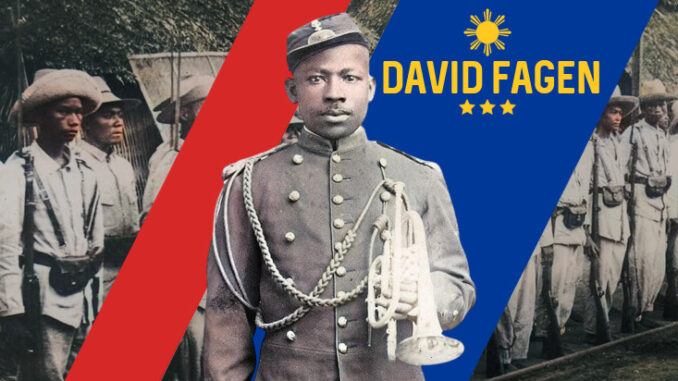
In the tumultuous time of the Philippine-American War, amidst the clash of empires and the struggle for independence, one man’s journey stood out as a testament to the resilience of the human spirit. David Fagen, an African-American soldier hailing from Tampa, Florida, found himself at the heart of a conflict that would shape the destiny of nations. But it was his decision to stand alongside the Filipino people in their fight for freedom that etched his name into the annals of history.
Born in 1875, Fagen initially served in the 24th Regiment of the U.S. Army, a unit predominantly composed of African-American soldiers. However, the entrenched racism and discrimination within the ranks of the American military weighed heavily on Fagen’s conscience. Like many of his fellow soldiers, he experienced firsthand the indignity of being treated as a second-class citizen, even as he donned the uniform of his country.
It was on November 17, 1899, that Fagen made the fateful decision to break free from the chains of oppression. Leaving behind the ranks of the U.S. Army, he embraced a new cause—the cause of the Filipino people who were fighting tooth and nail against American colonial rule. In the verdant jungles of the Philippines, Fagen found his calling, becoming a guerrilla leader within the Philippine Revolutionary Army.
But Fagen’s decision to defect was not merely a quest for personal liberation; it was a statement of solidarity with a people facing similar struggles against the scourge of imperialism. The Filipino soldiers welcomed him with open arms, recognizing in him a kindred spirit who understood the pain of oppression and the longing for freedom. Together, they forged bonds of camaraderie and shared purpose on the battlefield, united in their defiance against a common enemy.
The racism and prejudice that permeated the American military found its echo in the derogatory terms used by American soldiers to describe their Filipino adversaries that stung with the venom of hatred. Fagen, who had felt the sting of such epithets himself, stood in solidarity with the Filipino people, refusing to let their struggle be diminished or dehumanized.
As the tide of war ebbed and flowed, Fagen’s reputation as a formidable guerrilla leader grew, earning him the rank of captain within the Philippine Revolutionary Army. His daring leadership inspired Filipino fighters, as he led his comrades in acts of resistance that one can only admire.
In the aftermath of the conflict, as the dust settled and the echoes of battle faded away, Fagen’s fate became the subject of speculation and legend. Some claimed that he met a tragic end, his severed head paraded as a trophy of war in exchange for a bounty. Others whispered of a different destiny—one where Fagen found peace and solace in the arms of a local woman, retreating to the mountains to live out his days in quiet anonymity.
Regardless of the uncertainties surrounding his ultimate fate, one thing remains clear: David Fagen’s legacy endures as a testament to the enduring spirit of defiance and solidarity. His journey from soldier to revolutionary embodies the timeless quest for freedom and justice—a quest that knows no bounds of race or nationality. His name now stands as a beacon of hope, reminding us that the fight for liberation is a fight that belongs to us all.
